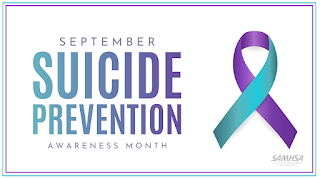Another "Day in the Life" of a School Psychologist
7:05 – Arrive at County Office to check out a test kit from the library. We have our own kits for common measures, but share assessments used less often.
7:30 – Arrive at an alternative school, unpack and set up to evaluate a student. We follow students who transfer to alternative settings, as they are still “our” students and will return.
7:55 – Still no student. Did scoring while waiting, but it looks like he’s not going to join us today. Pack up and come up with “Plan B,” my high school. Flexibility is a MUST, as my days rarely go as planned.
8:05 – Hooray! High school can share space with me, even though my visit wasn’t scheduled. Space is often a luxury for itinerant folks.
8:15 – Unpack for the second time and it’s not even 8:30 yet! Before students arrive, consult with a counselor about a student with chronic absences. We plan a home visit.
8:30 – Discuss with another counselor the increasing concerns we see with anxiety in students. Make myself a note to forward interventions/strategies that may be helpful.
8:50 – Call parent of a student at my middle school to discuss a reevaluation requested by his IEP Team. Noticed during file review that there is a history of a brain injury at an early age. Parent feels this is a major reason for his learning and behavioral challenges and agrees to sign a release for medical records. In W-S/FCS, we are fortunate to have 8 approved providers of evaluations for students with Traumatic Brain Injuries; school psychologists are often looking for those “red flags” to ensure that we’re appropriately evaluating student needs.
9:20 – Ready to start an educational assessment with a student, but he is not a happy camper when we meet. Instead of testing, we do problem-solving about his frustration regarding a suspension he just received.
10:05 – Support student during a meeting with administrator to discuss suspension and try to come up with alternatives to reduce lost instructional time. Student does a great job and even initiates discussion about moving back to an alternative educational setting where he previously experienced success. Awesome administrator agrees to reduce suspension and consider moving student back to alternative educational setting.
10:45 – Now that things are better in his world, student willingly participates with assessment.
11:40 – First chance to answer emails. Review interventions on anxiety that I have at hand. Send those suggestions off to the counselor. (We strive to ensure that any recommendations we advocate for are evidence based.)
12:00 – Home visit with counselor for chronically absent student. His parents aren’t home and our visit woke him up. We plan a time to meet with his parents.
12:50 – Eat lunch while reviewing files for upcoming assessments. Trying hard not spill anything on paperwork. Multi-tasking is another MUST for school psychologists!
1:45 – Complete an autism rating scale and adaptive behavior scale with a parent by phone. This involves lots of questions, but a wonderfully patient and supportive parent makes it okay.
2:30 – Conduct interview with a student referred for a Functional Behavior Assessment. She is very open about things she’s struggling with and agrees we can involve her school counselor in our meeting. We end up including parent by phone, to provide student and parent with community resources that may help. Counselor also sets up a schedule to check in with the student regularly. (Did I mention how much we love working with our student services colleagues?)
3:45 – Call parent of one of my elementary students to discuss the results of a recent evaluation.
4:15 – Answer emails and see a request from a Case Manager at another school to give her a call about a transfer student.
4:30 – Phone consultation with Case Manager. We come up with a plan to support the student during his transition. W-S/FCS enrolls students from all over the country – and from other countries! – in our school system. Understanding and working with diversity is important in our roles.
4:50 – Pack up at “Plan B” location, reflecting on the fact that my day didn’t go AT ALL as I had planned. While I didn’t accomplish what I expected, I still managed to accomplish some things - and I didn’t even have to come up with a “Plan C”! That’s always a good day.
This is School Psychology Awareness Week. If you have questions about what we do or why we do it, please stop by and ask your school psychologist. They would love to share the "small steps" they take each day to change lives.



Comments
Post a Comment